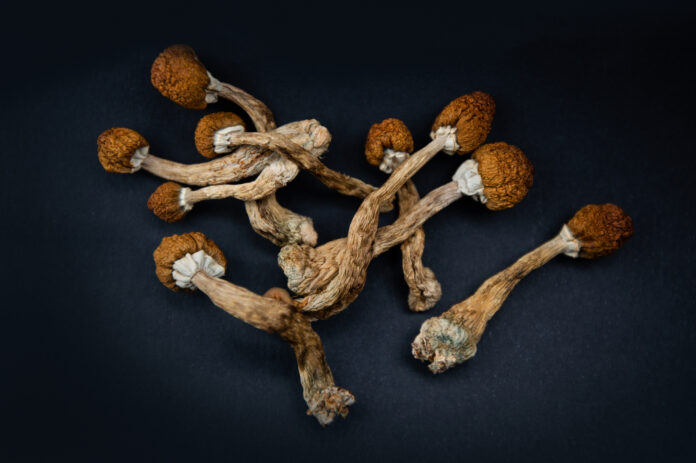
A recent study presented at the European College of Neuropsychopharmacology (ECNP) Congress in Milan showed that the psychedelic compound psilocybin, the active ingredient in “magic mushrooms,” provided similar improvements in depression to the conventional antidepressant escitalopram, an SSRI (selective serotonin reuptake inhibitor). The findings, also published in the journal eClinicalMedicine, suggest that while both treatments effectively reduce depressive symptoms, psilocybin may offer additional long-term benefits.
“This is the first work to compare the long-term effects of these two drugs in the context of overall well-being, not just freedom from depression,” said lead researcher Tommaso Barba, a PhD candidate at Imperial College London.
The Phase II, double-blind, randomized controlled trial, led by investigators at Imperial College London, followed 59 patients with moderate to severe depression over six months. Of these, 30 received a single dose of psilocybin, while 29 were treated with a six-week course of escitalopram, with both groups receiving similar psychological support.
A prior study had shown that at the six-week mark, both groups exhibited comparable improvements in depressive symptoms, such as sadness and negative emotions. However, at the six-month follow-up, those who took psilocybin reported greater enhancements in psychosocial functioning, including a heightened sense of meaning in life and better psychological connectedness compared with those who had receive escitalopram.
“These results appeared to be maintained over a six-month follow-up period. In addition, in previous work we had found that psilocybin also improves sexual drive, in contrast to SSRIs which tend to lower libido in many patients,” Barba added. “So overall it seems psilocybin might give additional positive mental health benefits.”
SSRIs like Prozac, Paxil, and Zoloft are commonly prescribed for depression, yet approximately one-third of patients do not respond to these medications. Psilocybin could provide a treatment alternative for those non-responders.
“SSRIs work well, but not for everyone,” Barb concluded. “They are also associated with some side effects. However, this work implies that psilocybin generally seems to offer a real alternative, and perhaps additional benefits, to people who are worried about taking conventional antidepressants.”
David Erritzoe, MD, PhD, clinical director at the Center for Psychedelic Research at Imperial College, noted some of the broader implications of this research: “Improving connectedness and having greater meaning in life can significantly enhance a person’s quality of life and long-term mental health. This study suggests that psilocybin therapy might be a more holistic treatment option for depression, addressing both the symptoms of depression and overall well-being.”
Erritzoe went on to explain, however, that psilocybin as a treatment for depression, remains under investigation and has not yet received regulatory approval. “It is administered in highly controlled environments, unlike recreational use, which can have unpredictable and harmful effects,” he said.
While early research has proven encouraging, the use of psychedelic substances for clinical use should proceed with caution.
“The results come with several caveats, including the lack of a non-inferiority analysis and the failure to report other interventions given during the follow-up period,” said Johan Lundberg, MD, adjunct professor of psychiatry at the Karolinska Institute in Stockholm.
Lundberg, who was not involved in the study, added that while the research is valuable for generating hypotheses, the approval of psilocybin for treating major depression is uncertain. “Some future patients might prefer psychedelic treatment over SSRI, but some patients may be intimidated by the dramatic alterations in perception and confrontations with challenging emotions that psychedelic drugs promote.”
Nevertheless, research into the clinical applications of psilocybin are gaining traction and these latest findings help contribute to a better understanding of treatment options for depression, particularly for those who do not respond to traditional SSRI antidepressant treatments.









![Best Weight Loss Supplements [2022-23] New Reports!](https://technologytangle.com/wp-content/uploads/2022/12/p1-1170962-1670840878.png)




